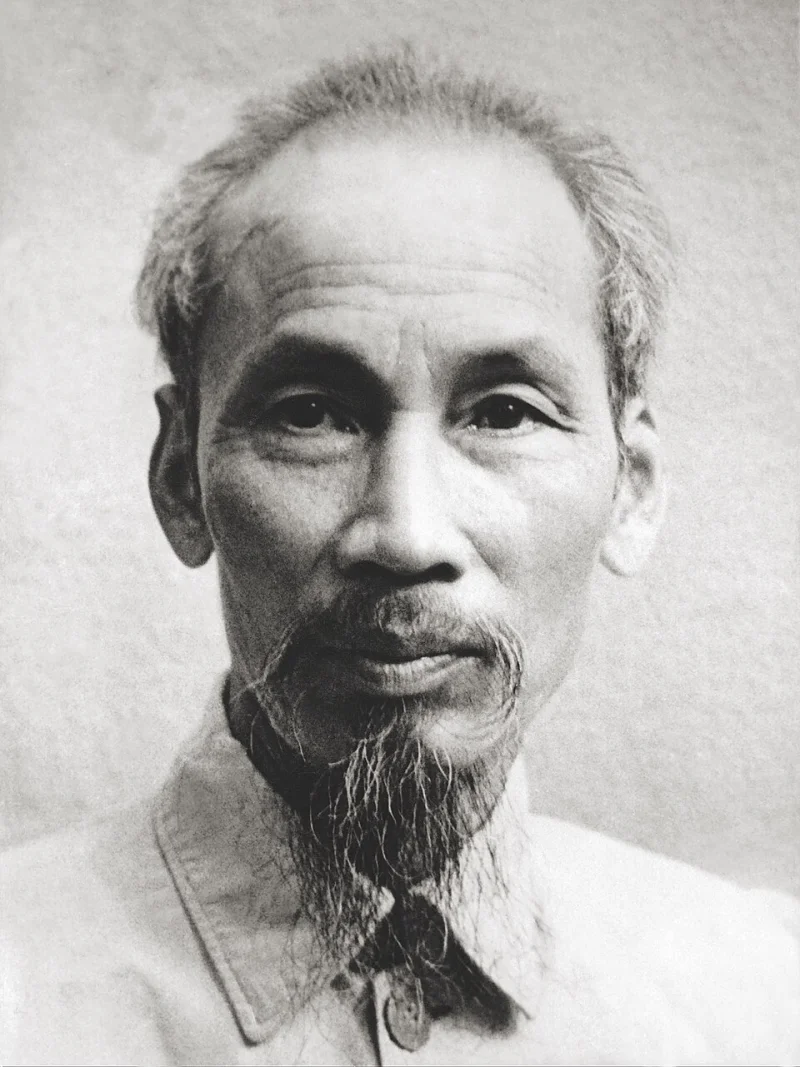Short Summary
Ho Chi Minh was a Vietnamese revolutionary leader who played a pivotal role in the struggle for Vietnam's independence from French colonial rule. He was the founding leader of the Democratic Republic of Vietnam and served as its president from 1945 until his death in 1969. Known for his unyielding dedication to national liberation and unification, he became an iconic figure in Vietnam and beyond. His leadership and vision were instrumental in the eventual reunification of Vietnam posthumously in 1975.
Early Life & Education
Ho Chi Minh was born on May 19, 1890, in Hoang Tru, a small village in central Vietnam. His birth name was Nguyen Sinh Cung. He was raised in a family that valued education and patriotism, as his father was a Confucian scholar and teacher. Ho was exposed to the harsh realities of colonial rule from a young age, which profoundly influenced his outlook on national sovereignty. He attended the National Academy in Hue but left Vietnam in 1911 to travel abroad. His travels exposed him to various cultures and ideologies, further shaping his revolutionary ideas.
Career Highlights
Ho Chi Minh's career was marked by his relentless pursuit of Vietnamese independence. In 1930, he founded the Indochinese Communist Party, which became a key force in Vietnam's liberation movement. He led the Viet Minh independence movement during World War II, culminating in the declaration of the Democratic Republic of Vietnam in 1945. Ho served as its first president and prime minister. His leadership during the First Indochina War against French forces was crucial in Vietnam's eventual victory at the Battle of Dien Bien Phu in 1954, which led to the Geneva Accords and the division of Vietnam.
Major Achievements
- Declaration of Vietnamese Independence in 1945: Ho Chi Minh declared Vietnam's independence from France, establishing the Democratic Republic of Vietnam.
- Leadership during the First Indochina War: He was instrumental in leading the resistance against French colonial forces, culminating in the victory at Dien Bien Phu.
- Founding the Indochinese Communist Party: This party played a critical role in organizing the independence movement in Vietnam.
- Influence in the Vietnam War: Ho's policies and vision were central to the North Vietnamese strategy during the Vietnam War.
Famous Quotes
- "Nothing is more precious than independence and liberty."
- "Remember, the storm is a good opportunity for the pine and the cypress to show their strength and their stability."
Interesting Facts
- Ho Chi Minh lived in over 30 countries during his lifetime.
- He worked as a chef on a French ocean liner before becoming involved in politics.
- He wrote under various pseudonyms, with Nguyen Ai Quoc being one of the most notable.
- Ho Chi Minh's embalmed body is displayed in a mausoleum in Hanoi.
Legacy / Influence
Ho Chi Minh's legacy is deeply ingrained in Vietnamese history and culture. He is revered as a national hero for his tireless efforts to achieve independence and unity for Vietnam. His leadership and vision have left a lasting impact on Vietnam's political landscape, and his ideas on nationalism and socialism continue to influence contemporary Vietnamese society. Internationally, he is recognized as a symbol of anti-colonial struggle and national self-determination.
FAQ
Q: Why is Ho Chi Minh famous?
A: Ho Chi Minh is famous for leading Vietnam's independence movement against French colonial rule and for being the founding president of the Democratic Republic of Vietnam.
Q: What was Ho Chi Minh's role in the Vietnam War?
A: Ho Chi Minh was the leader of North Vietnam and influenced the strategies employed during the Vietnam War to achieve national reunification.
Q: What was one of Ho Chi Minh's famous quotes?
A: One of his famous quotes is "Nothing is more precious than independence and liberty."








